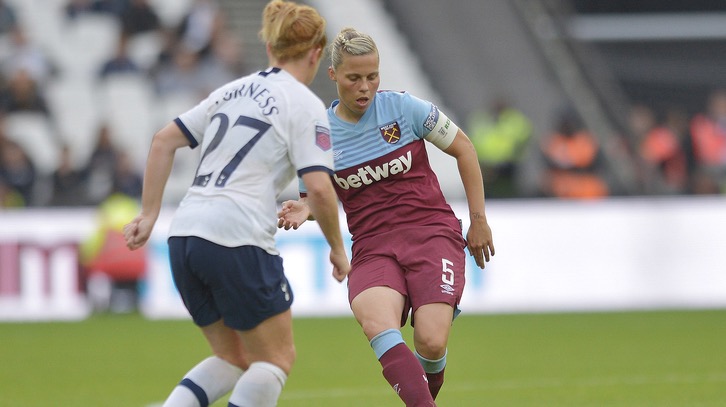First and foremost let me be clear, I adore Michael Cox (Zonal Marking). There are not enough astute thinkers and tacticians within the English media so he is a breath of fresh air.
In Cox’s latest article for The Athletic, he explains, “The WSL is ripe for a format with a mid-season split. The WSL would stay at 12 sides. But, after the existing 22-game programme (which would be played over a shorter timeframe than the current eight months) the league would split into a top half and a bottom half — after that point, teams wouldn’t be able to move between the “halves”.
“Then, the six top-half sides would play one another, home and away, over an additional 10 matches, as would the six bottom-half sides. That would create a 32-game league season.”
While I respect his progressive thinking behind the proposal I just cannot agree with its perceived benefits.
We all agree that some sort of reform of the women’s football pyramid is required to support the game’s rapid growth but for me, this is not the answer.
I have coached youth football for over twenty years, with the last six spent in the girl’s youth leagues. The only time I’ve seen leagues split or teams moved mid-season is to make sure teams with poor results, low morale and low ability do not fold, potentially losing young players and coaches from the game forever. This is should not the case in the women’s football pyramid.
Clubs with the highest level of investment are those with affiliations to rich men’s Premier League teams. These clubs can heavily invest in staff and facilities while absorbing the financial losses of their women’s team. These are also the clubs inflicting the big scorelines against lower-ranked clubs.
Birmingham City are a great example of how the reliance on that Premier League money impacts the fortunes of the FAWSL side. Had the Blues been able to have access to generous prize money for their high WSL finishes and better tv money then perhaps they could have remained more competitive by standing on their own two feet. Despite being bottom of the league the club failed to bring in a single player during the most recent transfer window. While I have no sources within the club to confirm this, I am confident that Darren Carter didn’t choose not to dip into his transfer kitty, it’s more likely that he didn’t have one.
There is no surprise that you’re seeing Saints and Wolves flourish since their male counterparts re-established themselves as mainstays of the Premier League.
If Newcastle invests wisely in their women’s team then there is no reason why they shouldn’t be in the Championship (at least) in the next three years. Given their wealth they could probably organise a professional team capable of competing in the WSL with just one transfer window.

We’ve seen a reduction in heavy defeats this season and the WSL is more competitive than ever before. So things are moving in the right direction.
With regards to the Championship, Cox proposes, “The Championship should expand to 16 teams. This would be played in a traditional league system: 15 matches at home, 15 matches away, for a 30-game league season… …the two “spare” match days invite the possibility of a play-off system to decide promotion.”
I cannot fault this proposal. The only thing I’d like to see is the National League Northern and Southern Premier winners both promoted. With perhaps a third team joining them, decided in a play-off between respective second-placed sides.
With regards to the National League third tier, I’d like to see it become one league with the top six or seven from the Northern and Southern Premier making up the league. However, this could only happen with significant investment, including sponsorship, tv coverage and prize money to make it financially viable to clubs involved to cover the logistics of running a team, paying players, travelling to matches as many clubs would ideally seek an overnight stay on the Saturday.
After establishing the WSL as one of the best leagues in the world, the FA must not just look to flog that for a quick win. I see too many similarities between that and the proposed men’s Super League. The FA must now target growth in the top four tiers of the pyramid by generating investment and income so players can truly realise their potential as professional (or in the short term semi-pro) players outside of the WSL.
In short, if we want to stop one-sided games then we support those teams on the receiving end to grow and develop.









